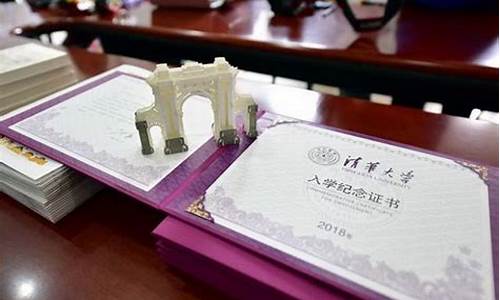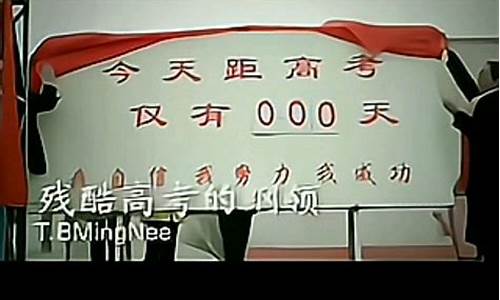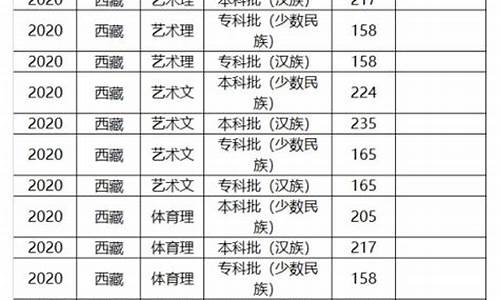您现在的位置是: 首页 > 教育研究 教育研究
2017高考英语大纲解读_2017高考英语真题答案及解析
tamoadmin 2024-06-04 人已围观
简介1.2017年天津高考英语卷难不难,天津高考英语难度系数点评解读及答案2.2017年高考英语备考:关系代词副词的区别一、《英语》科目考试内容及要求 考生应掌握基本的英语语言基础知识并具备一定的语言运用能力,包括基本的语音、语法和词汇,一定的阅读理解、口语交际以及初步的写作能力。 二、《英语》科目考试形式及试卷结构 1.试卷总分:150分。 2.考试时间:150分钟。 3.考试方式:闭卷考试,纸笔作
1.2017年天津高考英语卷难不难,天津高考英语难度系数点评解读及答案
2.2017年高考英语备考:关系代词副词的区别

一、《英语》科目考试内容及要求
考生应掌握基本的英语语言基础知识并具备一定的语言运用能力,包括基本的语音、语法和词汇,一定的阅读理解、口语交际以及初步的写作能力。
二、《英语》科目考试形式及试卷结构
1.试卷总分:150分。
2.考试时间:150分钟。
3.考试方式:闭卷考试,纸笔作答。
4.试卷结构
试卷内容:语音约3%、词汇与语法约10%、完形填空约20%、阅读理解约40%、补全对话约17%、短文协助约20%
试卷题型:客观题73%、主观题27%
自考/成考有疑问、不知道如何总结自考/成考考点内容、不清楚自考/成考报名当地政策,点击底部咨询官网,免费领取复习资料: style="font-size: 18px;font-weight: bold;border-left: 4px solid #a10d00;margin: 10px 0px 15px 0px;padding: 10px 0 10px 20px;background: #f1dada;">2017年天津高考英语卷难不难,天津高考英语难度系数点评解读及答案
2017必背高考英语3500词
《高考英语3500词》是2008年中国社会出版社出版的图书,收录了新课标和高考大纲要求掌握的全部词汇。下面是我整理的以A开头的英语词汇,欢迎阅读!
2017必背高考英语3500词A
1.●abandon v. 放弃,遗弃,抛弃 abandon the baby/ child/ friend
abandon the plan/ idea/ effort/ hope
abandon oneself to 陷入,沉湎于 He abandoned himself to despair.
2. ◎ability n. 能力; 才能 the ability to walk 行走的能力
to the best of one?s ability 竭尽全力 He completed the job to the best of his ability.
3.●abnormal adj.不正常的,畸形的,反常的 They thought his behavior was abnormal.
反义词:normal
4. ◎aboard prep. adv.在船(飞机,火车)上,上船(飞机,轮船)
all the people aboard 机上的人
5. about prep关于,ad 大约,到处
a) be about to do sth?(when) I was about to go out when it began to rain.
b) look about/around/round c) How/What about?询问情况或建议
6 . above prep 在?上面 above all 首先;尤其
7. abroad ad.到(在)国外 a) go /study /live abroad b) at home and abroad在国内外
8. ●absence n. 不在,缺席
absence from work/ school The decision was made in my absence.
in the absence of 在缺少?条件下 The case was dismissed in the absence of proof.
9. ◎absent adj. 缺席的,不在的 be absent from absent-minded adj. 心不在焉的
10. ◎absorb vt. 1) 吸收,吸进(液体,气体等) 2) 理解,掌握
absorb ink/ water/ neat/ light/ oxygen/ sound/ energy
absorb information/ knowledge be absorbed in 专注于,聚精会神于?
11.●abuse v / n. 滥用,谩骂 abuse alcohol/ drugs 酗酒 /嗜毒
abuse power/ position/ privilege 滥用权力/职权/特权
12. accept vt.
accept the gift /invitation /plan accept sb/sth as?
13.●access n.方法,通路,机会
The only access to the farm was a narrow bridge.
Only high officials have access to the emperor.
We students have access to the school library.
accessible adj. 可进入的,可接近的,可使用的
Such information is not easily accessible to the public.
14. accident n.事故,意外的事
by accident/chance 偶然,无意中;不小心
15. ●accompany v. 陪伴,伴随,伴奏 accompany sb. to the school/ supermarket
accompany the singer on / at the piano Lightening usually accompanies thunder.
16. ●accomplish v. 完成,到达,实现 accomplishment n. 成就,成绩
accomplish the task/ purpose/ goal
17. according to 根据 According to the law, he should be sentenced to death.
18. ◎accuse vt. 指控,指责 accuse sb of (doing ) sth 控告?
19.● accustomed adj. 习惯的.,适应的,惯常的
be/ get/ become accustomed to doing He was soon accustomed to getting up early.
20. ache vi./n headache / toothache My back aches so much.
21. achieve vt 达到;取得 achievement n 成就
achieve success/victory/one?s goal;
22.◎achievement n. 成就,业绩;完成(任务等) make great achievements
23.●acknowledge v. 承认,致谢
It is generally acknowledged that global warming is caused by greenhouse gases.
Yaoming is acknowledged as/ to be the best player in China.
I acknowledged financial support from the local government.
24. across prep cross v. I walked across the street.; cross a street; come/run across碰到
25. act n.法令,条例 vt.表演,扮演,行动,做事
act as 充当;扮演 act out 把?表演出来
26. action n. 行动 take action to do sth put sth into action 把?付诸实施
27. active adj. 积极的;主动的 take an active part in /be active in 积极参加
28.◎activity n. 活动 outdoor activities 户外运动
29.actual a.实际的 actually adv. in (actual) fact 实际上
30●adapt vi. 适应,适合,改编 vt. 使适应 adapt to change /the city life
adapt oneself to the new surroundings adapt the novel for a film adaptation n. 适应
31. add vt 添加,增加,补充说(that)
add(?)to 添加 add up 把?加在一起 add up to总计为; 总数为
a) His illness added to our trouble. b) He added that he would come again.
c) Please add these figures up. d) These numbers add up to 100.
e) He added some salt to the water.
32. address n.地址 vt.写地址;向?讲话(尤指演讲)
address the letter to sb. 给某人寄信 The letter was wrongly addressed.
The president addressed the public.
33.●adjust vt. 调整,调节,适应 adjust your speed /the volume/ the camera
adjust to the dark/ the single life adjust yourself to the student life adjustment n. 调整,调节
34. admire v 钦佩.;羡慕
admire sb for sth I admire John for his courage.
35. admit vt (admitted ,admitted)
1) 承认 admit one?s mistakes; admit doing/having done
He admitted having stolen the money.
2) 准许(入场,入学,入会) admit sb to /into?sb be admitted to
He has been admitted to Beijing University.
36.●adopt v. 收养,采用,采纳
adopt a child the adopted son/ daughter
adopt a new policy/ a suggestion/ a plan/ an attitude
37. advance vi推进,促进;前进 adj. advanced 先进的/ 高级的
in advance 预先,事先 an advanced worker
38. advantage n. 优点,好处(可数名词) 反:disadvantage
take advantage of 利用 have an advantage over 优于? to sb?s advantage 对(某人)有利
39. ◎advertise vt. 为?做广告
1)为?做广告 advertise a product / things
2)登广告征求/寻找? advertise for a new sales manager
40. advice n/u. advise vt. 忠告,劝告,建议 take/follow/ accept one?s advice 接受某人的建议
ask sb for advice 向某人寻求建议 a piece of advice 一条建议
give sb some advice on sth
advise sb (not) to do; advise doing; advise that ?(should)+do
Our teacher advised that we should study hard.
41. ●affect vt. 影响, 深深打动,使悲伤等
Smoking affects health. People were deeply affected by the death of Jin Zhengri.
42. afford vt. 负担得起,抽得出(时间); 提供
can/could/be able to afford sth/to do sth I can?t afford a book/to buy the book
43. afraid a. 害怕的;担心
be afraid to do 因为害怕不敢做?; be afraid of doing 害怕?
She was afraid to go out alone at night. She was afraid of waking him up.
44. against prep 对着,反对, 靠着,迎着,衬着
stand against the wall (靠墙站着) go against nature; be against sth 反对
They are strongly against the plan. The pine tree were black against the morning sky.
45. age n.年龄;时代 vi. 变老 for ages 多年; at an early age; at the age of ? ;
of the same age=of an age After his wife?s death he aged quickly.
46. agree vi. 同意;应允
1)agree with ① agree with sb / what you say/your opinion.
②表示一致;? (食物、天气、工作等)对?适宜?:
The weather does not agree with me. 这种天气对我不适宜。
A verb must agree with its subject in person and number.
What he does does not agree with what he says. 他言行不一致。
2)agree to the plan/ the arrangement/ the suggestion .
3)agree on /upon主要指双/多方通过协商而取得一致意见或达成协议:
We agreed on the price. 我们就价格达成了一致意见。
Both sides agreed on these terms. 双方都同意这些条件。
4) agree to do sth He agreed to go with us. 他同意同我们去。
5) reach/arrive at/come to an agreement 6) I can?t/couldn?t agree more.
47. ahead ad. 在前,向前 ahead of time 提前 go ahead 前进,干吧,说吧
48.◎aid n. 援助;救护;辅助工具
first aid 急救 in aid of 支持
by ( the) aid of 借助于,通过?的帮助 come/ go to one?s aid 帮助某人
v. 帮助,促进 aid (sb/ sth) in/ with ( doing) sth 帮助某人做?
49. aim at
① 瞄准,对准 He aimed the gun at the enemy officer.
② (向某方面)努力 She's aiming at ( trying to win) a scholarship.
③ 针对某人 My words were not aimed at you.
50.◎alike adj. 相像,十分相似 We are alike in many ways.
adv. 相似的,相同的 They tried to treat their children alike.
51. alive a. 活着的,存在的 catch ?alive 活捉 keep?alive be alive with= be full of
The lake was alive with fish. Who is the greatest man alive.(后置定语)
52. allow v 准许,允许 allow doing/ sb to do
allow for 把 考虑进去 Has everything been allowed for in your plan?
53. almost adv几乎,差不多
Almost no one/nobody came to the party. There was almost no snow that winter.
54. alone adj/adv 单独的 孤独的
1) 形容词She is alone at home. (她独自一人在家。)
2) 副词I like to work alone. (我喜欢独自一人工作。)
3) ?只有,仅仅?, The shoes alone cost $200. ※ let /leave sb /sth alone 别打扰
let alone 更不用说
★ lonely
1) 定语, ?孤单的,无伴侣的,无人烟的,荒凉的,偏僻的? a lonely man / island.
2) 表语,?孤寂的,寂寞的? feel lonely ※ He lives alone but he doesn?t feel lonely.
55. aloud ad.大声地 read aloud/ think aloud
56. ◎amaze vt. 使惊奇,惊叹;震惊
What amazes me is how long she managed to hide it from us.
It amazed me that he could be so calm at such a time.
amazed adj. 惊奇的,惊讶的 amazing adj.令人惊奇的,惊叹的;震惊的
I? m ___ that you have never heard of the Rolling Stones.
It?s ____ how often you see drivers using mobile phones.
57. ◎ amount n. 数额(尤指数量,大小等) a large amount of +u/n
large amounts of +u/n v. (数量,意义等) 等同,相当于 amount to
1) (数量上)达到,总计
Time lost through illness amounts to 1,357 working days.因疾病而损失的时间总共为
2)等于,意味着
Ultimately, their ideas amount to the same thing. 归根结底,他们想的都是一回事。
58. ● amuse vt. 使快乐,逗乐amuse sb. 使?高兴 The funny drawings amused the kids.
be amused by/at/ with 被?逗乐 amuse oneself 自娱自乐
The boys amused themselves by drawing. amusement n. to one?s amusement
59. ◎amusement n. 1) 娱乐,乐趣 to one?s amusement 让某人发笑
They were dancing and singing in the car, much to the amusement of passers-by.
他们在车里跳舞,唱歌,让路人感到十分有趣。
2) 娱乐活动,消遣活动 amusements amuse vt. amuse sb/ oneself 使开心,逗笑
amused / amusing adj. an amused smile / look/ expression 愉快的微笑/ 神情/ 表情
an amusing story/ film 有趣的,好笑的,逗人发笑的故事/ **
60. angry adj 生气的,愤怒的 (angrily /angrier )
be angry at (about) 因为?而生气 be angry with sb 生某人的气
61. announce vt. 宣布,宣告,公布
announce a decision / plan/ intention announce sth to sb announce that
At the end of the meeting , it was announced that an agreement had been reached.
make an announcement
62.◎announcement n. 通告,通知
63.◎annoy vt. (使)烦恼 be annoyed with sb.for (at) sth.
What annoyed him most was that he had received no apology.
annoyed adj. 略感烦恼(生气)的 annoying adj. 讨厌的,令人烦恼的
It?s _____that we didn?t know about this before.令人恼火的事,我们事先并不知道这一切
Mr Davies was ____that the books were missing.戴维斯先生生气了,因为那些书不见了。
64. answer n. the answer to the question v. answer a question/the door/the phone;
answer for 对? 负责 You will have to answer for your wrong doing one day.
65. ◎anxiety n. 忧虑,焦急,担心
anxious adj. 焦虑的,不安的;担心的 be anxious about sth for sb
渴望的,急切的 be anxious to do sth
67. ◎apologize n. 道歉,歉意 apology n.
make an apology/ apologies to sb for sth apologise to sb for sth
68. ●appeal v. n. 吸引,呼吁,恳求
The design has appealed to people of all ages. I appeal to you to protect the environment.
have/ hold appeal for sb. 对某人有吸引力 lose one?s appeal 失去吸引力
69. appear 1) vi. 出现,露面 The man suddenly ______ from behind the tree scared me.
2) 系动词 似乎,好像 appear+ (to be) + n/adj 似乎
It appears (to sb) that /as if He appeared to be happy in the news.
It appears to me that he will win
It appears that all the files have been deleted.档案好像都已经被删除了。
Police say there appear to be signs of a break-in.警方称似乎有破门而入的迹象。
70. ◎appearance n. 出现,露面;容貌 judge by appearances 以貌取人
71.◎application n.申请 make an application for
72. apply v. 申请 apply for 申请;请求,接洽
apply sth to ?运用,应用 apply oneself to 致力于,集中精力做某事
73. ●appoint vt. 任命,委派,安排,确定
1) 任命,委派A committee was appointed to consider the plan. 一个委员会被指定去研究这些计划。 He was appointed as chairman.
2). 约定,确定 Everyone got there at the appointed time.
In the evening he made his way to the appointed meeting place.
74. appointment n.
make an appointment 约定、会 his appointment as president 他担任总统的任命
75. ◎appreciate vt. 欣赏;感激 appreciate your concern appreciate doing sth
appreciate your abilities/ fine works of art I?d appreciate it if you let me get on with my job.
76. ◎approach 1). v. 接近;靠近;走进
As they approached the wood, a rabbit ran out of the trees.
I find him difficult to approach. The winter vacation is approaching.
2). n. 接近;方法;途径;通路
He decided to adopt a different approach and teach the Bible through story-telling.
His approach to the problem are wrong. All the approach to the palace were guarded by troops.
77. ●approve vi. 赞成 vt. 同意,批准 approve of 赞成,同意 approve of one?s idea
He doesn?t approve of my leaving this year. approve the plan/ proposal 通过计划/ 提议
approval n.
79. argue vi. 争辩,争论 n. argument 1) argue for /against 赞成/反对
2) argue sb into/out of doing sth 说服某人做/不做某事
3) argue with sb about sth 与某人争论某事
80. ◎arise arose arisen vi. 1) 出现,发生,产生 A new crisis has arisen. 新危机出现。
2)起床,起身,起立 He arose at dawn. 他黎明即起。
81.◎argument n. 1)争论,辩论 have an argument with sb about / over sth
2) 论点,论据 a powerful argument against smoking argue v. argue with sb about / over sth
82. arm
n. 手臂,支架 武器(复) arm in arm 手挽手 take up arms 拿起武器
vt. 以?装备,武装起来 arm?with?
Armed with the new equipment, the explorers entered the cave. be armed to the teeth 全副武装
83. around 在周围; 在附近; 大约
around the corner 在拐角处,即将到来 around the clock 昼夜不停地
84.◎arrange vt. 安排,布置
arrange an appointment 安排预约 Have you arranged to meet Mark this weekend?
We had arranged that I would go for the weekend.我们商量好了,这个周末我去。
He arrived as arranged. 他如约而至。
The company will arrange for a taxi to meet you at the airport.
Dave arranged for someone to drive him home.
arrangement n. 安排,布置 make arrangements for?
85.◎arrest vt. 逮捕,拘捕 He got arrested for careless driving.
n. put / place sb under arrest 逮捕某人
86. arrive v arrival n. 到来;达到 arrive at Guests receive dinner on/upon their arrival
87. article n. 文章;东西;物品;冠词 an article of clothing 一件衣服
88. ashamed adj 惭愧,害臊
89. asleep adj 睡着的,熟睡 (表语形容词) fall asleep 入睡 He seems to be fast asleep.
90. ●assist v. 帮助,协助 assist sb. in dong /with sth.
we?ll assist you in finding a place to live.
She employed a woman to assist her with the housework.
assistance n. technical/ military assistance 技术/军事援助
91. ●assume v. 假定,假设 It is assumed that?普遍认为
I had assumed him to be a teacher. 我本以为他是老师。
He assumed an air of concern. 他装出关心的样子。 assuming (that)? 假设,假如
92. assumption n.
a) be ashamed of 以为是耻辱 b) be ashamed of oneself for 为?而害羞
c) feel ashamed for sb 替某人感到羞愧 ※ ashamed & shameful
ashamed指事物使人感到羞耻、惭愧、害臊;
shameful指事物或本身可耻不道德。 He is ashamed of his shameful conduct.
93. astonish v 使惊讶 astonished /astonishing
be/look astonished at 对?感到大吃一惊 an astonished look
94. attach attach ?to
95. attempt v. 试图,尝试
attempt to do He was charged with attempting to kill his wife.
attempt sth The plane crashed while attempting an emergency landing.
n. make an attempt to do /at doing 试图做某事
96. attend v. 看护,照料,服侍;出席,参加 attend a meeting/ school/ church/ the concert
attend to sth处理,注意 I have a few other things to attend to.
attend to sb 看护 attend to a baby
97. attention n. 注意,关心
pay ( much/no/little) attention to draw one?s attention to
fix one?s attention/mind/eyes on; attract one?s attention
98. attract v. 吸引,引起 Like attracts like 物以类聚
99. available
100. average adj 平均的;普通的 n. 平均数 on (the)average 按平均
I was just an average sort of student. 我只是一个普通学生。
101. avoid doing
102. awake v. 唤醒;(awoke/ awoken) Is he awake or asleep? awake to sth 意识到 醒悟到
It took her some time to awake to the dangers of her situation. adj 醒着的be wide awake
103. award n. v.
104. aware be aware of
105. away adv离开;远离 keep away from 保持距离; far away 在远处
right away 立刻,马上; give away 泄露,赠送
106. awful
adj.可怕的; 糟糕的; 非常的; 极坏的;
adv.非常,极;
;2017年高考英语备考:关系代词副词的区别
2017年天津高考英语试卷整体难度适中,语法填空考查的知识点非常简单,第四篇阅读和完形填空个别题难度较大,加大了区分度,凸显了选拔人才的目的。
总的来说,217年天津市高考英语试卷对考生的基础知识、逻辑思考能力、推理判断能力及表达能力各方面都进行了考查。
一、 关系代词和关系副词的区别
1、关系代词(that, who, whom, whose, which)所代替的先行词是人或物的名词或代词,并在句中充当主语、宾语、定语等成分。
例1. Is he the man who/that wants to see you?(who / that在从句中作主语,指人)
例2. He is the man whom/ that I saw yesterday.(whom / that在从句中作宾语,指人)
例3. They rushed over to help the man whose car had broken down.(whose在句中作定语,指人)
例4. Please pass me the book whose (of which) cover is green.(whose在句中作定语,指物。若指物,它还可以同of which互换)
例5. The package (which / that) you are carrying is about to come unwrapped. 你拿的包快散了。(which / that在句中作carry的宾语,指物)
2、关系副词(when, where, why, that)可代替的先行词是时间、地点或理由的名词,在从句中作状语。关系副词when, where, why的含义相当于"介词+ which"结构,因此常常和"介词+ which"结构交替使用。
例6. Beijing is the place where (in which) I was born.
例7. Is this the reason why (for which) he refused our offer?
例8. His father died the year (that / when / in which) he was born.
例9. He can’t find the place (that / where / in which) he lived forty years ago.
二、 判断用关系代词和关系副词
方法1: 用关系代词,还是关系副词完全取决于从句中的谓语动词。及物动词后面无宾语,就必须要求用关系代词;而不及物动词则要求用关系副词。请改错:
1. This is the mountain village where I visited last year.
2. I will never forget the days when I spent in the countryside.
习惯上总把表地点或时间的名词与关系副词 where, when联系在一起。此两题错在关系词的误用上。句1和句2的where, when都应改为which.。
方法2: 准确判断先行词在定语从句中的成分(主、谓、宾、定、状),根据第一点(区别),也能正确选择出关系代词/关系副词。
例10.This museum is ___ you visited a few days age?
A. where B. that C. on which D. the one
例11. This is the museum ____ the exhibition was held.
A. where B. that C. on which D. the one (答案:例1 D,例2 A)
在例10中,所缺部分为宾语,而where, that, on which都不能起到宾语的作用,只有the one既做了主句的表语,又可做从句的宾语,可以省略关系代词,所以应选D。
而例11中, 主、谓、宾俱全,从句部分为句子的状语表地点,既可用副词where,又因 in the museum词组,可用介词in + which 引导地点状语。而此题中,介词on 用的不对,所以选A。
关系词的选择依据在从句中所做的成分,先行词在从句中做主、定、宾语时,选择关系代词 (who, whom, that, which, whose); 先行词在从句中做状语时,应选择关系副词 ( where 地点状语,when 时间状语,why 原因状语)。
方法3:当先行词是all, everything, anything, nothing,the one, much, few, any, little等,或先行词是形容词级时,或在there be 句型中,或当先行行词既有人又有物时,关系代词用that, 而不用which。
例12. Finally, the thief handed everything that he had stolen to the police.
例13. The soldiers and their guns that we sent to the front were lost.
方法4:在引导非限定性定语从句时,和在介词后不能用that,应用which。
例14.(错) The tree, that (改为which)is four hundred years old, is very famous here.
例15.We depend on the land from which we get our food.
上一篇:高考霸气说说_高考最霸气的一句话
下一篇:青海省高考二卷_青海高考全国2卷









